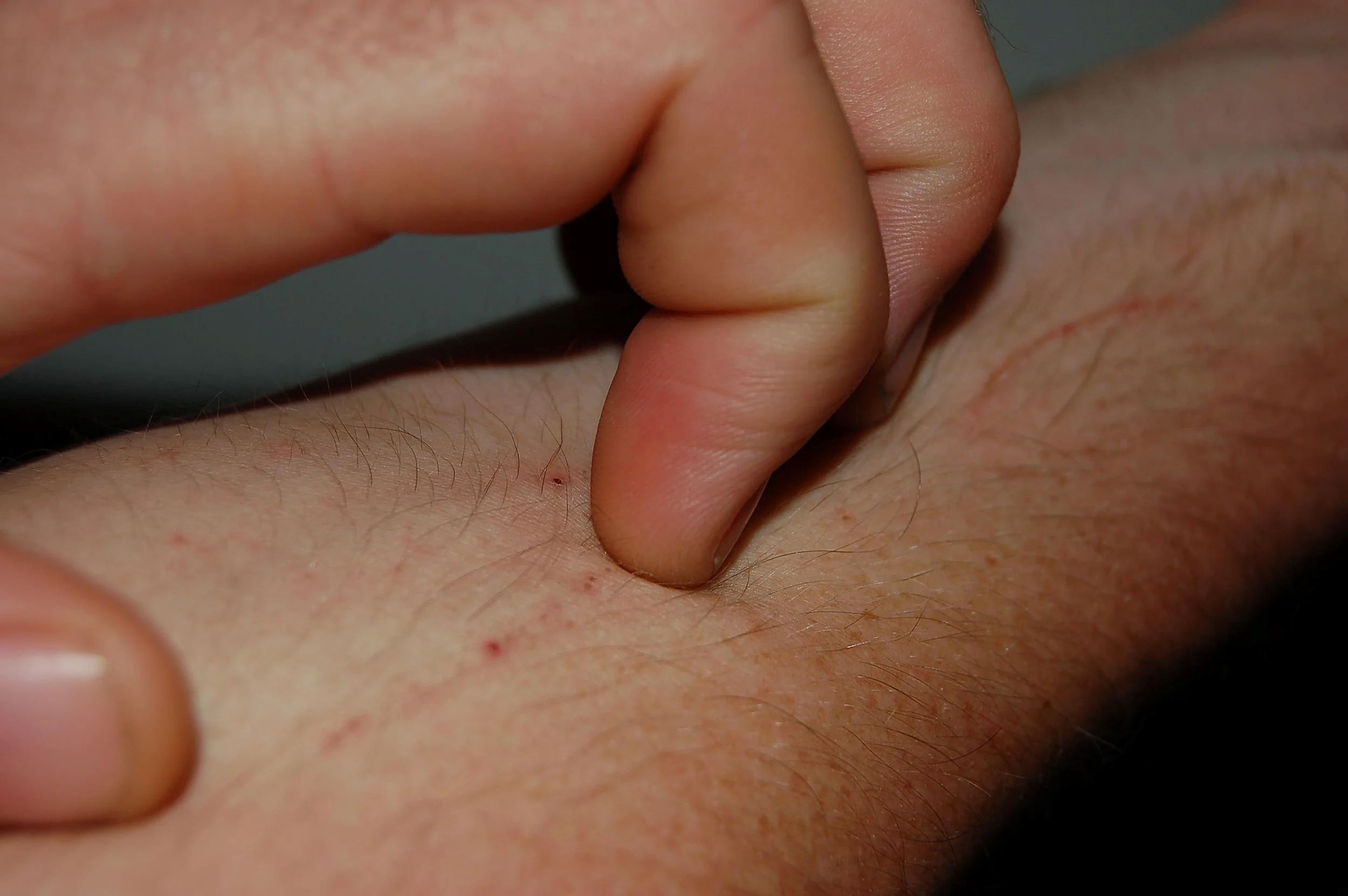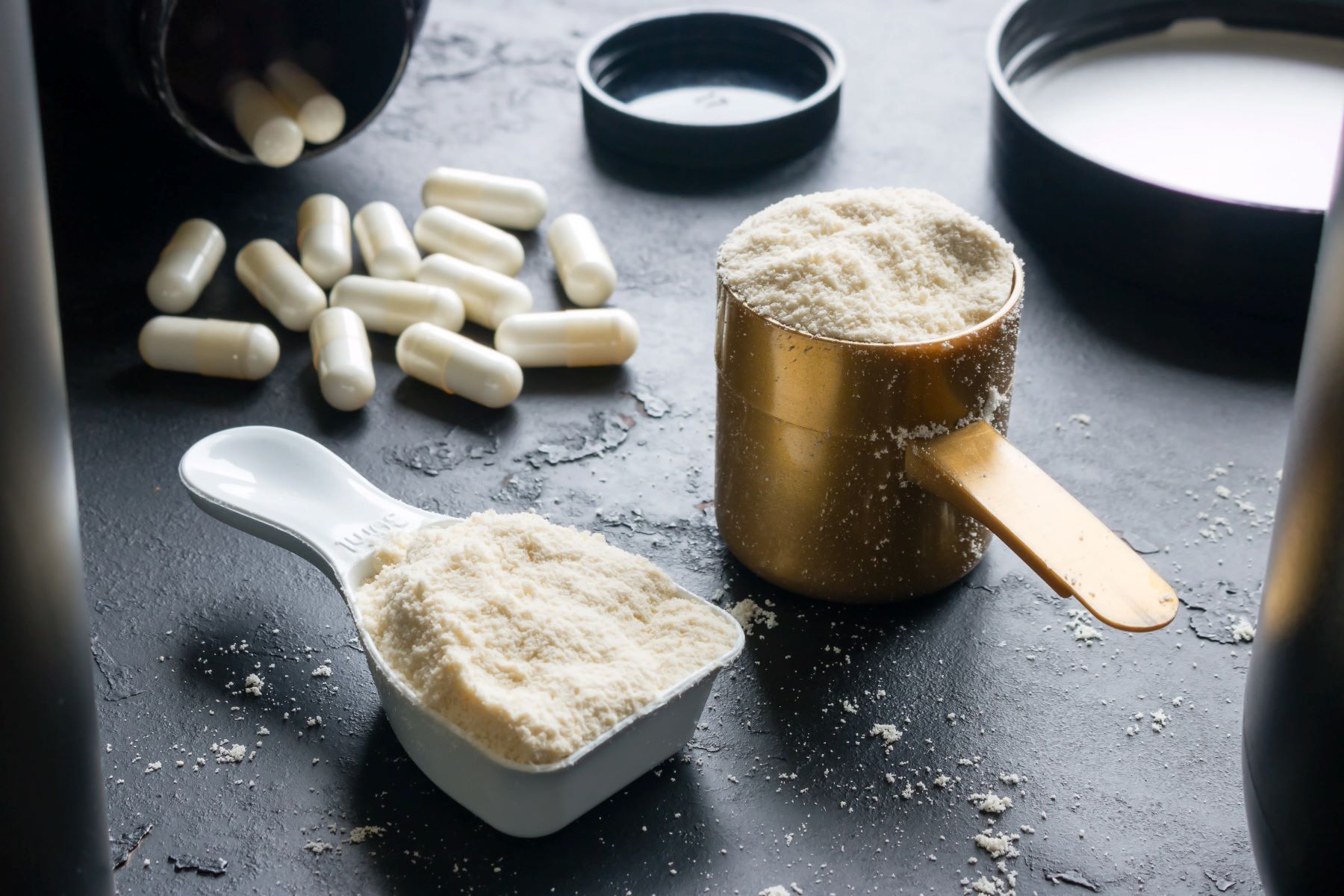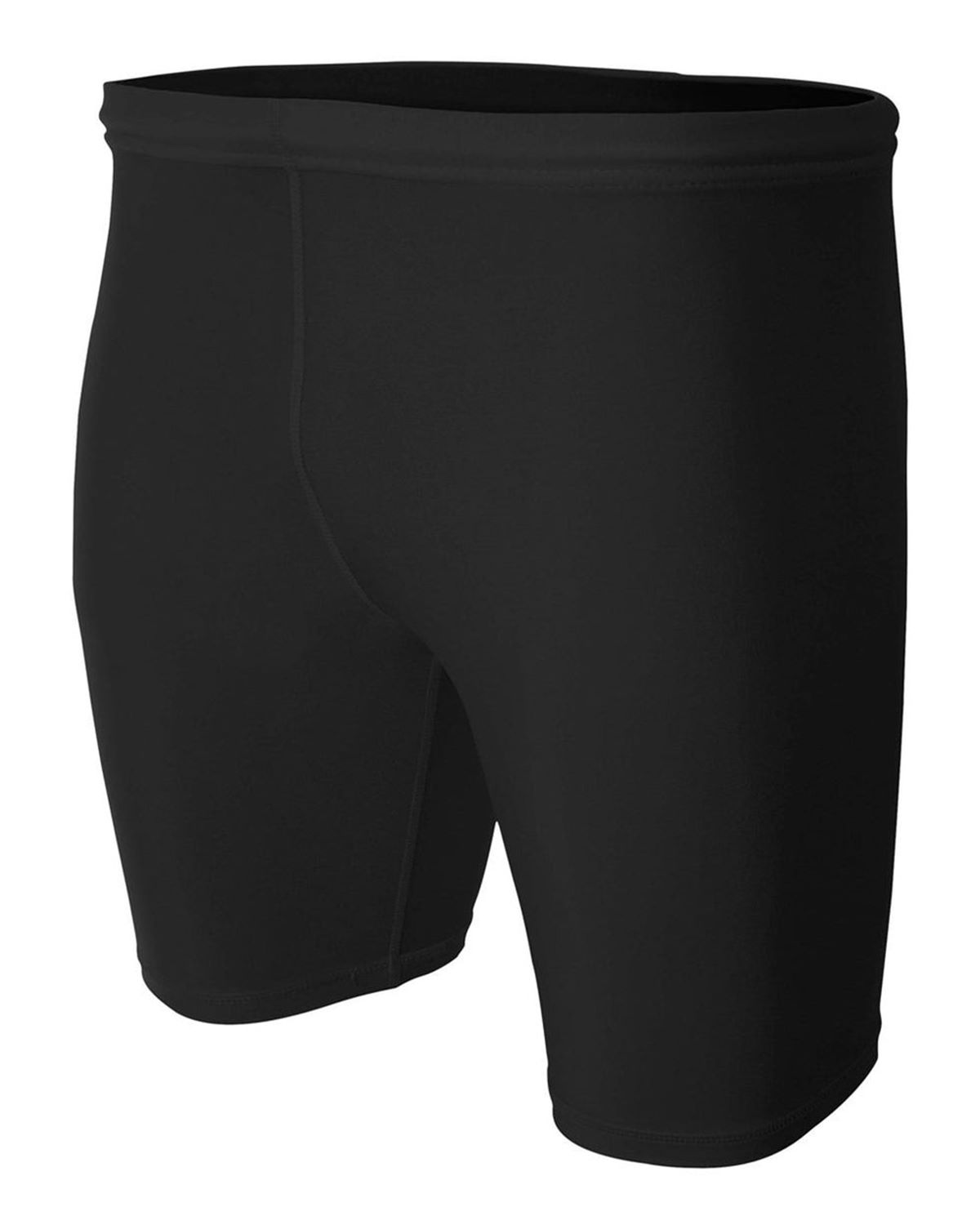

Featured
What In Pre-Workout Makes You Itch
Modified: August 21, 2023
Discover the featured ingredient in pre-workout supplements that may cause itchiness. Learn how to minimize and manage this discomfort for a more enjoyable workout experience.
Introduction
Pre-workout supplements have become increasingly popular among fitness enthusiasts and athletes, as they provide a boost of energy, focus, and endurance during intense training sessions. These supplements often come in the form of powders or capsules and are designed to enhance performance and optimize workout results.
However, one common side effect that many individuals experience after taking pre-workout supplements is itching. This sensation can range from a mild itch to an intense, uncontrollable urge to scratch. While itching may seem like a minor inconvenience, it can be quite bothersome and even interfere with your workout.
To understand why pre-workout supplements can make you itch, it’s important to delve into the science behind it. By examining the ingredients and their impact on the body, we can gain insights into how these supplements can trigger itching sensations.
In this article, we will explore the common ingredients found in pre-workout supplements and focus on beta-alanine – a widely used compound – as the main culprit behind itching. We will delve into the mechanisms by which beta-alanine induces itching and discuss strategies to manage and minimize this side effect. So, if you’ve ever wondered why pre-workout supplements make you itch, keep reading to uncover the science behind it.
Understanding Pre-Workout Supplements
Before delving into why pre-workout supplements can make you itch, it’s important to have a basic understanding of what these supplements are. Pre-workout supplements are specifically formulated to provide a burst of energy, focus, and endurance to help individuals maximize their performance during workouts.
These supplements typically contain a blend of ingredients that work synergistically to enhance various aspects of physical performance. Some common ingredients found in pre-workout supplements include caffeine, creatine, beta-alanine, citrulline, and B-vitamins, among others.
The specific combination and dosage of ingredients may vary depending on the brand and product. Manufacturers design pre-workout supplements to be taken approximately 30 minutes before exercise to allow for optimal absorption and utilization of the ingredients.
It’s important to note that pre-workout supplements are not meant to replace a well-balanced diet or serve as a substitute for proper training and rest. They are intended to complement a healthy lifestyle and enhance performance during intense workouts.
The primary benefits of pre-workout supplements include increased energy levels, improved focus and mental clarity, enhanced endurance, and reduced muscle fatigue. These effects can be especially beneficial for individuals engaging in high-intensity workouts that require sustained effort and concentration.
It’s crucial to choose pre-workout supplements from reputable brands and consult with a healthcare professional before starting any new supplement regimen. They can assess your individual needs, potential allergies or sensitivities, and ensure that the supplements are safe and suitable for your fitness goals.
Now that we have a better understanding of what pre-workout supplements are and their intended purpose, let’s explore how these supplements can trigger itching sensations in some individuals.
The Science Behind Itching
Itching, scientifically known as pruritus, is a common sensation that can occur for various reasons. It is typically caused by the activation of sensory nerves in the skin, which transmit signals to the brain, resulting in the perception of itchiness.
When it comes to pre-workout supplements, the itching sensation can be attributed to a specific ingredient called beta-alanine. Beta-alanine is a non-essential amino acid that is naturally produced in the body and can also be obtained through dietary sources such as meat and poultry.
During exercise, your muscles produce lactic acid as a byproduct, leading to a decrease in pH levels within the muscle tissue. This decrease in pH levels can contribute to muscle fatigue and a decrease in performance.
One of the primary roles of beta-alanine is to increase the levels of carnosine in the muscles. Carnosine acts as a buffer within the muscle tissue, helping to maintain an optimal pH balance and delay the onset of muscle fatigue.
When you consume pre-workout supplements containing beta-alanine, it gets absorbed into your bloodstream and is transported to your muscle tissue. Once it reaches the muscles, it combines with the amino acid histidine to form carnosine. As the levels of carnosine increase, it can help delay the accumulation of lactic acid and improve muscular endurance.
However, the increase in carnosine levels is not the direct cause of itching. Rather, it is the temporary activation of certain sensory nerve fibers, known as C-fibers, that are responsible for the itching sensation.
When beta-alanine is metabolized in the body, it produces a compound called histamine. Histamine is a chemical released by immune cells during allergic reactions and inflammatory responses. It plays a crucial role in the body’s defense mechanisms but can also cause itchiness when it binds to specific histamine receptors in the skin.
For individuals who are more sensitive to histamine, the release of histamine from the increased levels of beta-alanine can trigger the itching sensation. This explains why some people experience itching primarily in areas where the skin is thinner, such as the face, neck, and hands.
In the next section, we will explore beta-alanine in more detail and discuss how it specifically triggers itching sensations.
Common Ingredients in Pre-Workout Supplements
Pre-workout supplements are formulated with a variety of ingredients to boost energy, enhance focus, and improve performance during workouts. Understanding the common ingredients found in these supplements can help shed light on why they may cause itching in some individuals.
1. Caffeine: Caffeine is a stimulant that can increase alertness, improve focus, and provide a surge of energy. It is a popular ingredient in pre-workout supplements due to its ability to enhance physical performance. While caffeine itself is not known to cause itching, some individuals may experience a mild skin reaction as a rare side effect.
2. Creatine: Creatine is a compound that helps replenish adenosine triphosphate (ATP) stores in the muscles, leading to increased energy production and improved muscle strength. Unlike beta-alanine, creatine is not associated with itching as it does not directly affect the release of histamine or activate sensory nerves in the skin.
3. Beta-alanine: As mentioned earlier, beta-alanine is an amino acid that helps increase carnosine levels in the muscles, leading to improved endurance. It is the primary culprit behind itching sensations in pre-workout supplements.
4. Citrulline: Citrulline is an amino acid that aids in the production of nitric oxide, which promotes vasodilation, or the widening of blood vessels. This increase in blood flow can enhance muscle pumps, improve nutrient delivery, and delay fatigue during workouts. Citrulline itself is not known to cause itching.
5. B-vitamins: B-vitamins, such as B6, B12, and niacin, are often included in pre-workout supplements for their role in energy metabolism and nerve function. While B-vitamins are generally well-tolerated, high doses of niacin may cause a niacin flush, which can manifest as a warm, tingling sensation on the skin, but this is different from itching.
It’s important to note that while these ingredients may cause side effects in some individuals, they are generally safe and well-tolerated when taken as directed. However, everyone’s tolerance and sensitivity to certain ingredients can vary.
In the next section, we will explore beta-alanine in more detail and discuss how it specifically triggers itching sensations.
Beta-alanine: The Culprit Behind Itching
Among the various ingredients found in pre-workout supplements, beta-alanine stands out as the primary culprit behind itching sensations. Beta-alanine is an amino acid that combines with histidine to form carnosine, a molecule that helps buffer the muscles and delay the onset of fatigue during intense exercise.
While beta-alanine is generally well-tolerated, it is known to cause a tingling or itching sensation, commonly referred to as “beta-alanine itch” or “paresthesia.” This sensation typically occurs within 15-30 minutes of consuming a pre-workout supplement that contains beta-alanine.
The itching sensation is reported to be more intense in individuals who consume higher doses of beta-alanine. However, it is important to note that not everyone experiences this side effect. Some individuals may only experience a mild tickling sensation, while others may find it extremely uncomfortable.
To minimize the risk of itching, some pre-workout supplements combine beta-alanine with other ingredients that have a calming effect on the sensory nerves, such as L-histidine or L-carnosine precursors.
It’s worth mentioning that the itching sensation caused by beta-alanine is temporary and typically subsides within a few hours. It is a benign side effect and is not harmful or indicative of any serious health issues.
Moreover, it’s important to differentiate between the temporary itching experienced from beta-alanine and an allergic reaction. If you experience symptoms such as hives, difficulty breathing, or swelling after consuming a pre-workout supplement, it is crucial to seek immediate medical attention as these could be signs of an allergic reaction.
While the exact mechanism behind beta-alanine-induced itching is still being studied, it is believed to be associated with the release of histamine from certain immune cells in the skin. The histamine binds to specific receptors, triggering the itch sensation.
It’s worth noting that individual tolerance to beta-alanine may vary. Some individuals may gradually develop a tolerance to the itching sensation over time, while others may always experience it to some degree. If the itching becomes too uncomfortable or bothersome, it is advisable to consult with a healthcare professional and consider adjusting the dosage or exploring alternative pre-workout supplements.
Now that we understand why beta-alanine can trigger itching sensations, let’s delve into how it specifically activates the itching response in the next section.
How Beta-alanine Triggers Itching Sensation
The itching sensation triggered by beta-alanine in pre-workout supplements is a result of its indirect interaction with histamine receptors in the skin. When beta-alanine is metabolized in the body, it produces histamine, a chemical involved in immune responses and allergic reactions.
Upon release, histamine binds to specific histamine receptors, namely H1 and H2 receptors, located on various cells throughout the body, including sensory nerve fibers in the skin. Activation of these receptors leads to the transmission of itch signals to the brain, causing the itching sensation.
It’s important to note that the release of histamine from the increased levels of beta-alanine in the body is not the same as an allergic reaction. The release of histamine in an allergic reaction is typically triggered by an immune response to a specific allergen.
However, in the case of beta-alanine-induced itching, the release of histamine is transient and not related to an allergic response. It is more akin to the release of histamine during physical activity or stress, which can sometimes lead to itching sensations.
It’s also worth noting that the sensitivity to histamine and the subsequent itching sensation varies among individuals. Some people may be more prone to experiencing itching, while others may not be affected at all.
While beta-alanine-induced itching can be bothersome, it is generally a benign side effect and is not indicative of any significant health concerns. The sensation usually subsides on its own within a few hours as the levels of histamine normalize and are metabolized by the body.
If the itching becomes too uncomfortable or interferes with your workout, there are a few strategies that you can try to manage it. Firstly, adjusting the dosage of beta-alanine may help alleviate the intensity of the itching sensation. Starting with a lower dosage and gradually increasing it over time may allow your body to adapt and minimize the side effect.
Additionally, some individuals find that taking an antihistamine, such as diphenhydramine, prior to consuming a pre-workout supplement can help reduce or prevent itching. However, it is important to consult with a healthcare professional before incorporating any medications or supplements into your routine.
In the next section, we will discuss some precautions to keep in mind when using pre-workout supplements and potential side effects associated with their use.
Managing Itching from Pre-Workout Supplements
If you experience itching after consuming pre-workout supplements, there are several strategies you can try to manage and minimize this side effect. While everyone’s tolerance and sensitivity to ingredients may vary, these tips may help alleviate the discomfort:
1. Adjust Beta-alanine Dosage: Start with a lower dosage of beta-alanine and gradually increase it over time. This can allow your body to adapt and potentially reduce the intensity of the itching sensation. Consult with a healthcare professional for personalized dosage recommendations.
2. Consider Timing: Experiment with the timing of your pre-workout supplement intake. Some individuals find that taking the supplement earlier, such as 60-90 minutes before exercise, allows ample time for beta-alanine to be metabolized and decreases the likelihood of experiencing itching during the workout.
3. Take an Antihistamine: Taking an over-the-counter antihistamine, such as diphenhydramine, prior to consuming a pre-workout supplement may help reduce or prevent itching. However, it is essential to consult with a healthcare professional before incorporating any medications or supplements into your routine.
4. Switch to Modified Formulas: Look for pre-workout supplements that include beta-alanine in modified forms, such as sustained-release versions or those combined with other ingredients that have a calming effect on sensory nerves. These formulations may help mitigate the itching sensation while still providing the benefits of beta-alanine.
5. Monitor Your Symptoms: Keep track of the intensity and duration of the itching sensation when consuming different pre-workout supplements or adjusting dosages. This information can help you identify patterns and make informed decisions about which products work best for you.
6. Individual Sensitivity: Recognize that individuals react differently to ingredients, and what works for one person may not work for another. Be mindful of your body’s response and consider alternatives if the itching persists or becomes too uncomfortable.
In addition to managing itching, it is vital to prioritize overall health and well-being. Remember to follow recommended dosage guidelines, maintain a well-balanced diet, stay hydrated, and get enough rest to support your fitness goals and recovery.
If the itching persists, worsens, or is accompanied by other concerning symptoms, it is advisable to consult with a healthcare professional. They can evaluate your specific situation, address any underlying causes, and provide guidance tailored to your needs.
In the concluding section, we will summarize the main points discussed and offer some final thoughts on managing itching from pre-workout supplements.
Precautions and Potential Side Effects
While pre-workout supplements can be beneficial for enhancing workout performance, it is important to be aware of potential precautions and side effects that may arise. Here are some considerations to keep in mind:
1. Consult with a Healthcare Professional: Before incorporating pre-workout supplements into your routine, it is wise to consult with a healthcare professional, especially if you have underlying health conditions or are taking any medications. They can provide individualized advice and ensure the supplements are safe for you.
2. Follow Recommended Dosages: It is crucial to follow the recommended dosages provided by the manufacturer. Taking more than the recommended amount can increase the likelihood of experiencing side effects and may not provide additional benefits.
3. Monitor Caffeine Intake: Many pre-workout supplements contain caffeine to enhance energy and focus. However, excessive caffeine consumption can lead to jitters, restlessness, increased heart rate, and difficulty sleeping. Be mindful of your overall caffeine intake from other sources such as coffee and tea.
4. Stay Hydrated: Pre-workout supplements can have a diuretic effect, causing increased urine output. It is essential to stay properly hydrated by drinking sufficient water before, during, and after your workouts to avoid dehydration.
5. Allergy and Sensitivity: Some individuals may have allergies or sensitivities to certain ingredients in pre-workout supplements. If you experience symptoms such as hives, swelling, or difficulty breathing, discontinue use immediately and seek medical attention.
6. Potential for Drug Interactions: Certain ingredients in pre-workout supplements can interact with certain medications. If you are taking medications, it is crucial to inform your healthcare professional and inquire about any potential interactions before starting a pre-workout supplement regimen.
7. Other Possible Side Effects: Aside from itching, other potential side effects of pre-workout supplements may include gastrointestinal discomfort, headaches, increased heart rate, nervousness, and insomnia. If you experience any adverse reactions, discontinue use and consult with a healthcare professional.
It’s important to remember that pre-workout supplements are not a magic solution, and they should be used in conjunction with a well-balanced diet, regular exercise, and adequate rest. They should not replace a healthy lifestyle or compensate for poor habits.
Ultimately, the decision to use pre-workout supplements is a personal one, and it is essential to listen to your body and make informed choices. Regularly reassess your goals, needs, and responses to the supplements to ensure they align with your overall health and fitness journey.
In the concluding section, we will summarize the main points discussed throughout the article.
Conclusion
Pre-workout supplements can be valuable tools for enhancing performance and maximizing workout results. However, it’s important to be aware of the potential side effect of itching that can occur in some individuals, especially with the presence of beta-alanine as an ingredient.
The itching sensation associated with pre-workout supplements is generally harmless and temporary. It is primarily caused by the release of histamine triggered by beta-alanine. While the exact mechanisms behind this phenomenon are still being studied, adjusting the dosage, timing, or considering alternative formulations may help manage and minimize itching.
When using pre-workout supplements, it is crucial to follow recommended dosages, consult with healthcare professionals if needed, and be mindful of potential interactions or allergies. Staying properly hydrated and monitoring caffeine intake are also important factors to consider.
Remember that individual sensitivity and responses to pre-workout supplements may vary. It’s essential to listen to your body and make informed decisions based on your own experiences and needs. If you experience persistent or concerning side effects, it is advised to consult with a healthcare professional.
Pre-workout supplements should never replace a well-balanced diet, regular exercise, and proper rest. They should be used as part of a comprehensive approach to overall health and fitness goals.
Incorporating pre-workout supplements into your fitness routine can provide the energy, focus, and endurance needed to push through intense workouts. By understanding the science behind itching and being aware of precautions and potential side effects, you can make informed choices to optimize your performance and minimize discomfort.
Ultimately, finding the right balance and combination of supplements will vary from person to person. By staying educated, listening to your body, and making appropriate adjustments, you can harness the benefits of pre-workout supplements while managing any potential itching or other side effects.









